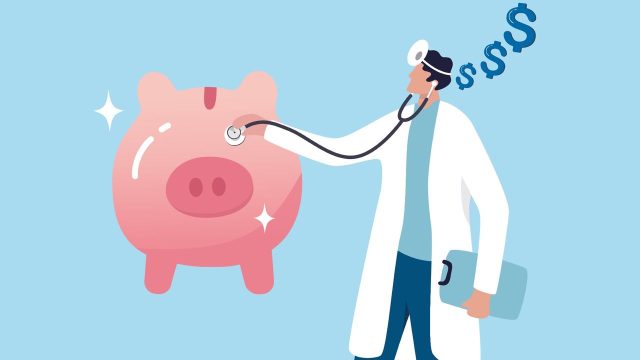
Medical debt can already feel like a double whammy. First, you have a medical event to contend with, and then you are saddled with bills from the whole ordeal. But could there be a third blow, with your credit score taking a hit if you struggle to pay the bills?
For a while, the three major credit bureaus were on track to remove medical debt from the credit reports. But that plan hit a roadblock when a “court ruling this summer canceled a Biden-era federal effort,” said The New York Times. Now, the Trump administration is “seeking to thwart similar state efforts,” making it all the more likely that those struggling with medical debt may see a credit impact.
When does medical debt affect your credit?
Medical debt can have an impact on your credit if your debt is over $500. The three main credit bureaus “voluntarily removed medical debts under $500 from credit reports in 2023, and that policy remains in place,” said the Times, citing a spokesman for the credit bureau industry association.
If your bills are over that amount, then they will appear on your credit report and can “negatively impact your credit score if your account is sold to collections and you don’t pay the bill within the 365-day grace period,” said Experian, one of the three major bureaus. That mark can remain on your report for up to seven years, though it will fall off once you have repaid your debt.
But even with the recent reversals, medical debt may not have a huge impact, depending on the credit scoring model. “Newer FICO credit scoring models give less weight to unpaid medical collections than to other types of collections, and newer VantageScore® credit scoring models don’t consider unpaid medical collections at all,” said Experian. That said, some models may still account for it.
How can you avoid credit impacts from medical debt?
The best way to prevent medical debt from harming your credit is to ensure that debt does not end up in collections. “As long as your debt remains with your provider, it’s not reported to the three main credit bureaus,” said CNBC Select. It is only “after several months of non-payment” that “your provider may sell your debt to a collections agency” — a period during which you should take action.
What options do you have to help address medical debt?
Medical debt can be an unexpected and unavoidable expense. To pay off your medical bills and avoid them dragging down your credit, consider:
Negotiating. “Health care providers are often willing to work with you if it means they’ll receive at least partial payment rather than nothing at all,” said Experian.
Asking about a payment plan. Depending on your provider, you may be able to set up an arrangement to pay your total bill in installments, “possibly with no interest,” said CNBC Select.
Looking into financial assistance options. It is also worth finding out if your hospital offers any financial assistance options, some of which are income-dependent. “Even if your hospital stay was over a year ago,” it may be “possible to get financial assistance retroactively,” said Bankrate, citing Lindsey Zischkale, a policy analyst at Undue Medical Debt. Nonprofit organizations may also be able to offer help.
The short answer is yes, though it depends on the credit scoring mode




